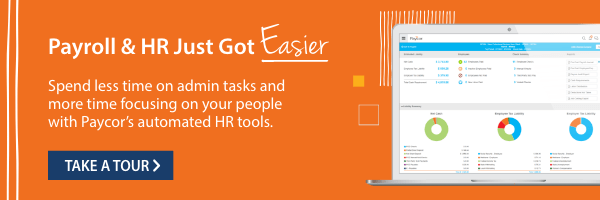As the gig economy grows, more employers are looking to hire independent contractors (aka 1099 workers). But since paying independent contractors isn’t a walk in the park, many employers are looking for step-by-step instructions. Here’s a breakdown of everything you need to know:
How Do I Pay a 1099 Worker?
This subject is something you will need to discuss in detail with the person you’re hiring for the job. Often, they will provide you with a written contract that stipulates how and when they should be paid. The two most common methods of payment are hourly and by the job or project. Some independent contractors—such as attorneys—prefer to be paid on retainer, which means you pay them a lump sum at the beginning of each month in return for a certain number of allotted hours of work.
When you first engage with a 1099 worker, you’ll also need to consider some additional payment agreements, such as:
- How often is payment due? Upon receipt of the invoice, net 15, and net 30 days are the most common payment terms.
- What are the “measurables” or milestones for payment? For example, a “by the job” pay agreement often includes specific deadlines for parts of the project. When each milestone is met, a portion of the pay is released.
- What happens if the contractor’s work isn’t done on time?
- What happens if your company’s payments are not made on time?
- What happens if the work isn’t acceptable or correct?
- Who is responsible for any revisions to the work? How many revisions are permissible?
These payment terms are just as important as the payment amount, and they should be decided before the person begins work.
Who’s Responsible for Independent Contractors’ Payroll Taxes?
The short answer: Not your company. That’s the clear distinction between a contractor and an employee of your company. If your company is submitting a federal tax deposit to the IRS and state and local governments, that person must be classified as an employee. A freelance worker, on the other hand, is responsible for paying all of their federal and state and local taxes, as well as Social Security and Medicare (FICA) taxes. Since they are self-employed, they’re also required to pay both their portion and the employer’s portion of those FICA taxes. The current federal tax rate for independent contractors is 15.3% (12.4% to Social Security and 2.9% to Medicare).
Important note: Since 1099 workers are not employees of your company, you are not entitled to claim them for a Work Opportunity Tax Credit (WOTC).

What Is Form 1099?
The IRS’s Form 1099 (more formally known as Form 1099-NEC) is used by businesses that have work performed by freelance or contract staff. People who hire workers such as housekeepers, accountants, or attorneys—and pay them $600 or more per year—are also supposed to send them a Form 1099 and file the form with the IRS.
W2 vs. Form 1099
In a nutshell, employee compensation is tallied on a Form W-2 and contractor compensation is calculated on a Form 1099. The W-2 also shows how much federal income tax as well as state and local taxes were withheld. Form 1099 doesn’t show withheld taxes because the contractor is responsible for paying those. And that’s where the confusion over whether a person is an employee or independent contractor can set in. We’ll get to that in a minute, but let’s cover the basics before we dive any deeper.
How Are Independent Contractors Taxed?
Before you can complete a 1099, there’s another form you need to be concerned with if you work with freelancers or other contract labor: That would be Form W-9, Request for Taxpayer Identification Number (TIN) and Certification. The W-9 is the document the contractor provides to your company when they first start working with you. It’s also what you use to report how much you pay them to the IRS.
The W-9 contains the contractor’s business name and address, a taxpayer identification number (either Social Security number or employer identification number [EIN]), tax classification, and their signature. A Social Security number is used if the independent contractor is a sole proprietor of their business, for example a freelance graphic designer who has no employees. The EIN is used by businesses that have employees, such as a janitorial service you contract with. If the contractor doesn’t give you a TIN or provides one that’s incorrect, you can withhold 24% of their pay (i.e., backup withholding) and send it to the IRS.
How Do I Determine if a Worker is an Employee or a Contractor?
The IRS considers three situations to distinguish between independent contractors and employees:
- Behavioral Control
- Financial Control
- Type of Relationship
| Behavioral Control | Financial Control | Type of Relationship | |
|---|---|---|---|
| Employee | Has on-the-job training, set hours, and employer-prescripted guidelines for how and when work should be completed. | Has guaranteed wages or salary. | Receives employee benefits (e.g., PTO, insurance, retirement plan, etc.) |
| Independent Contractor | Sets their own hours and chooses how and when work should be completed. | Paid a flat fee per project or hour. | Contracted for a set time or number of projects. |
What Are the Consequences of Misclassifying a Worker as an Independent Contractor?
Misclassifying a worker as an independent contractor can have several consequences for both the employer and the worker:
- Legal and financial penalties. Misclassification may lead to legal consequences and financial penalties imposed by government agencies such as the IRS or the Department of Labor (DOL). These penalties can include fines, back taxes, unpaid wages, and interest payments.
- Unpaid benefits. Independent contractors are generally not entitled to employee benefits such as health insurance, retirement plans, paid time off, and workers’ compensation. Misclassified workers may be denied these benefits, leading to potential financial hardship or loss.
- Employment-related protections. Misclassified workers may be excluded from various employment-related protections, such as minimum wage laws, overtime pay, and protection against discrimination or harassment. This can result in the denial of certain rights and legal remedies available to employees.
- Increased employer liability. Employers may face increased liability if misclassified workers are injured on the job. Without workers’ compensation coverage, the employer may be responsible for covering medical costs and other damages resulting from workplace injuries.
- Audit risk. Misclassification can trigger audits by tax authorities and labor agencies, resulting in additional scrutiny of an employer’s practices. This can be time-consuming, expensive, and may lead to further penalties if other compliance issues are discovered.
- Damage to employer reputation. Misclassification can negatively affect an employer’s reputation, both among workers and in the broader community. This can result in difficulty attracting and retaining talent, as well as potential damage to the company’s brand image.
It’s important for employers to understand the legal criteria for classifying workers correctly and to consult with legal or tax professionals to ensure compliance with applicable laws and regulations.
Paycor Supports Small Businesses
We’re proud to keep more than 30,000 organizations up-to-date and compliant with federal and state employment laws. Interested in learning more? Consult with a Paycor representative.
*This content is for informational and educational purposes only and is not intended to be taken as legal advice. For legal advice, consult with your professional legal or tax advisor.





